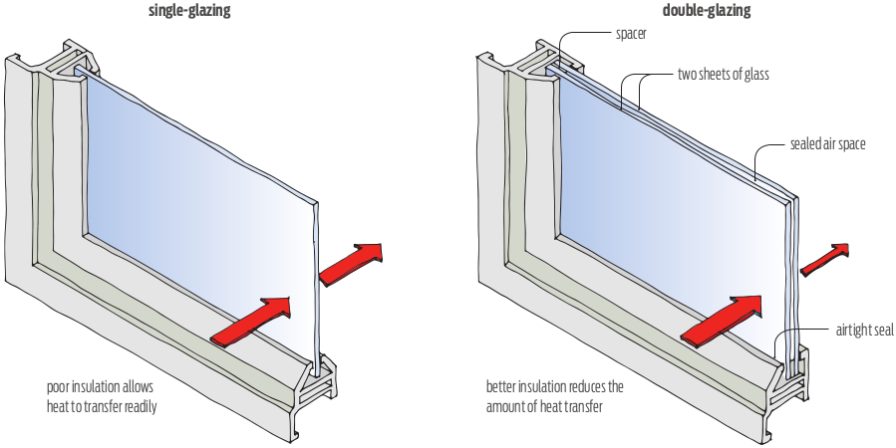An energy efficient home is a comfortable home, as it is one that is easier to heat or cool. Making sure your home is energy efficient will not only improve comfort, but will also save money on utilities. Insulation, location, and the materials used in home construction will all help to increase energy efficiency. The glass you use in your home is also critical when it comes to energy efficiency. If you’re deciding between single glazed and double glazed windows, it’s important to know the differences, and which option is better for your home.

A single glazed window is constructed using a single pane of glass. This means that the only thing separating your home from the outside environment is that pane of glass. Typical window glass ranges from 3mm to 10mm, which doesn’t provide adequate insulation. A single glazed window can be up to 20 times less efficient than an insulated wall when it comes to energy loss or storage.
Double glazed windows utilize two separate pieces of glass, separated by a vacuum. The vacuum layer acts as an insulative barrier. The glass used can be laminated or UV tinted, but is otherwise similar to the glass used in single glazed windows. When double glazing is retrofitted to an existing window installation, the thermal efficiency can be improved by up to 80%. Factory made double glazed windows can be up to 100% more efficient than a single glazed equivalent.
The most obvious benefit to be gained from double glazed windows, is the increase in energy efficiency. This means that it will be easier to maintain the temperature inside your home. This is especially beneficial to families with air conditioners, or central climate control systems.
An example would be a home that is using a split type air conditioner/heat pump to warm a living room during winter. Without double glazing, the warmth inside is easily lost. This means that the indoor unit is forced to work harder to maintain a comfortable temperature in the room.
With double glazing, heat loss can be reduced by half in optimal conditions. When combined with insulated curtains covering the windows, the heat loss becomes even less.
When it comes to aluminium windows, we are faced with the image of an all-metal frame through which heat easily passes. This is not the case today. The industry is making progress and aluminium window frames have also changed.

Innovative Aluminium Window & Door Solution

Mail: info@rotoi.com.au
ABN: 42 663 950 070
@2023 Copyright by ArmPlus. All Rights Reserved
